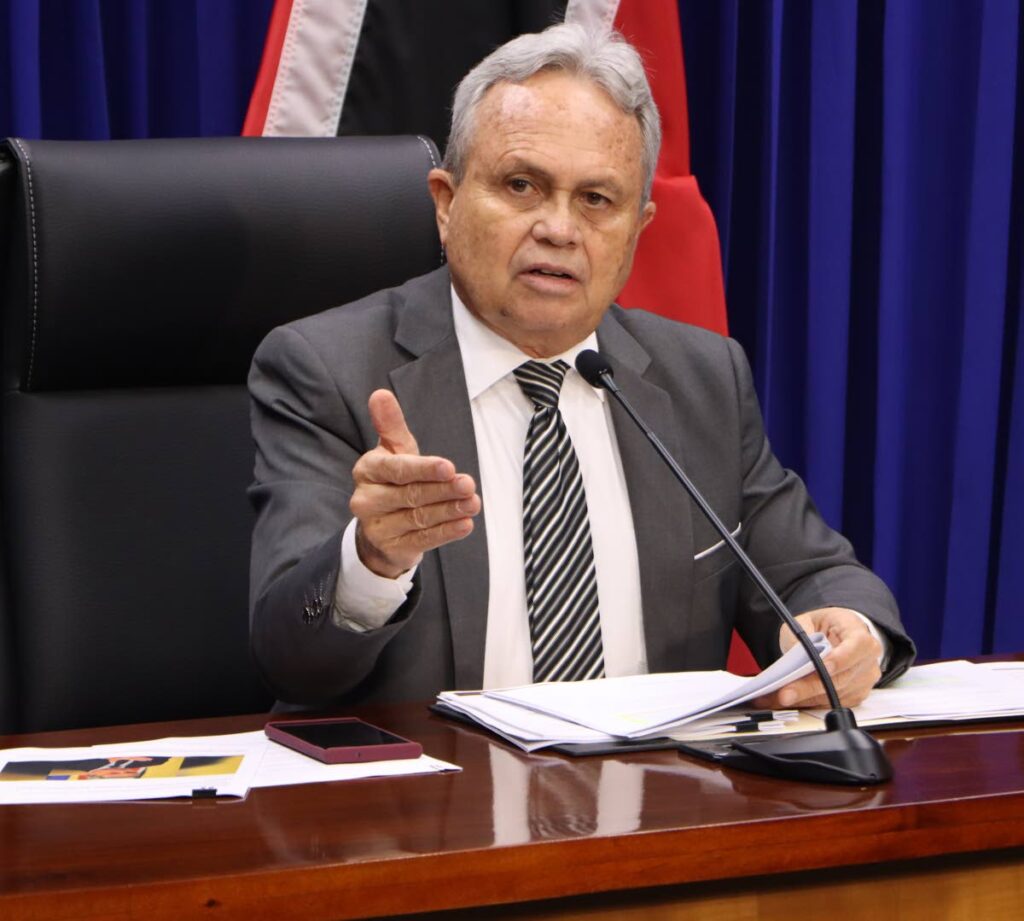A budget oriented to common good

Statement by Catholic Commission for Social Justice on Monday's budget
AS FINANCE Minister Colm Imbert prepares to deliver potentially the last budget speech before the next general election, the Catholic Commission for Social Justice (CCSJ) urges the Government to prepare a budget that is oriented to the common good. As we seek to grow our economy, we must ensure that the resources of the nation are used to create conditions which will improve the material standard of living of all our people.
The centrality of the person, the common good, solidarity and subsidiarity are key social justice principles that should guide our government in the preparation of the budget. Our people are our greatest asset. Economic justice requires that the economy serves the people. Therefore, all budgetary decisions should be underpinned by a consideration of issues such as equity, equality and distributive justice.
Over the years, Pope Francis has highlighted the need to put “community” at the heart of all socio-economic development. He urges each country to create an economy at the service of each human being – not just of the few, but of all, especially the poor and vulnerable.
He says: “A community that knows how to give a voice to the voiceless is what we all need.” We pray that TT’s budget-making process will embrace the concept of building a nation in which, as the pope says, "the weak and voiceless can feel welcome and heard."
Francis calls on nations to promote integral ecology, that is, the development of all dimensions of a person and of each person, while at the same time promoting ecological justice, since everything is connected. He reminds us that care for the environment and care for the poor go hand-in-hand – they “stand or fall together.”
Our national budget must take into consideration resources that are required to address the environmental challenges we face; for example, the adverse impact of climate change. The concept of integral ecology requires us to have a plan to protect our environment not only for ourselves, but for future generations.
TT faces fiscal challenges, including the cost of grappling with high levels of crime and violence. We are sure that in preparing the budget, our leaders will have read the signs of the times, including TT’s position on various international reports.
For example, on the Corruption Perceptions Index (2023), TT ranks 76 out of 180 countries. On the Global Innovation Index (2023), TT ranks 102 of 132 countries. On the Global Competitiveness Index, TT ranks 79 out of 141 countries in 2019.
Although, according to the UNDP’s Human Development Index Report (2023/2024), of the 193 countries surveyed TT is positioned at number 60, for those of us working on the “ground” the gap between the rich and the poor is widening daily.
For a small nation of approximately 1.4 million people, far too many of our brothers and sisters live in poverty and lack the basic necessities; many are socially excluded and live on the margins of society. Everyone must have a place at the table of life. Each must have what he/she needs in order to thrive.
Over the past 16 years, TT has had only one surplus budget. The rest has been deficit budgets, and this trend may continue in the budget to be announced on Monday. It is essential that we work towards reversing this trend, as we are stewards also for those who come after us and we should not saddle them with huge debts. We realise that the Government faces difficult choices.
Minister Imbert has warned of challenging times ahead, particularly as our revenue has declined. Now is the time for the Government to consider restructuring the budget so as to steer away from favouring certain elements of the dominant business sectors and give more opportunities to much smaller businesses and to the poorer sections of society.
For example, while the head of the Energy Chamber, Dr Thackwray "Dax" Driver, calls for a removal of the subsidy for electricity rates, he suggests that the Government should "leave the subsidies in place for the poorest households, but better-off households in the top tariff levels do not need an electricity subsidy and commercial businesses should be paying the market rate for electricity.”
He suggests that TT could reduce energy usage by 40 per cent with the right adjustments, and that "the removal of the electricity subsidy would aid the necessary push for renewable energy in the country."
The SDG Accountability Handbook reminds us: "The decisions made in government budgets, and how those decisions are implemented on the ground, have a direct and transformative impact on people’s lives.
"Evidence shows that the best way to manage public funds efficiently and equitably is through budget systems that are transparent, inclusive and monitored through strong, independent oversight institutions.
"On the other hand, lack of fiscal transparency and limited public participation and oversight undermine fiscal discipline, increase borrowing costs, undermine the efficiency of public services and create opportunities for corruption and other leakages."
Whatever total sum is available in our budget, let us use it wisely to improve the quality of life of all our people. Let us reject corruption, the culture of waste, inefficiency and lack of accountability and transparency that exist in certain quarters and which hinder progress. Let us instead promote efficiency and effectiveness in fiscal management, and good leadership in the public and private sectors and among all citizens. Good governance is essential if we are to manage our affairs effectively and equitably.
Now more than ever, every penny counts, if we are to take our nation forward. Let us act as good stewards of our nation’s resources, which are given to us as gift from God.

Comments
"A budget oriented to common good"